Annika Buchholz
Mapping the Web of Science, a large-scale graph and text-based dataset with LLM embeddings
Feb 04, 2026Abstract:Large text data sets, such as publications, websites, and other text-based media, inherit two distinct types of features: (1) the text itself, its information conveyed through semantics, and (2) its relationship to other texts through links, references, or shared attributes. While the latter can be described as a graph structure and can be handled by a range of established algorithms for classification and prediction, the former has recently gained new potential through the use of LLM embedding models. Demonstrating these possibilities and their practicability, we investigate the Web of Science dataset, containing ~56 million scientific publications through the lens of our proposed embedding method, revealing a self-structured landscape of texts.
Federated Learning in Multi-Center Critical Care Research: A Systematic Case Study using the eICU Database
Apr 20, 2022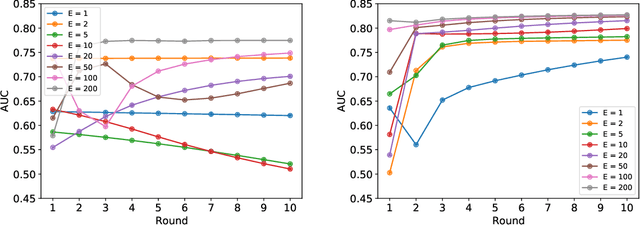
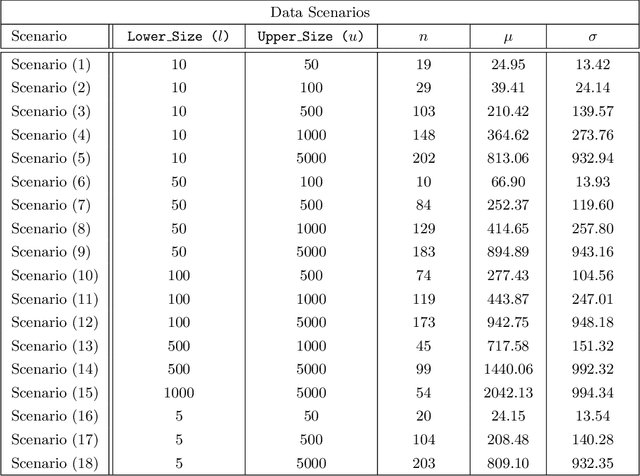
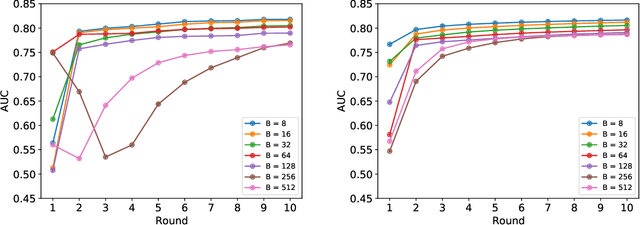
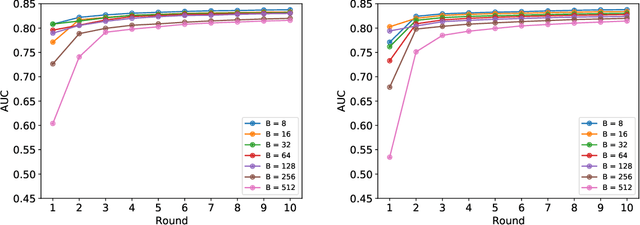
Abstract:Federated learning (FL) has been proposed as a method to train a model on different units without exchanging data. This offers great opportunities in the healthcare sector, where large datasets are available but cannot be shared to ensure patient privacy. We systematically investigate the effectiveness of FL on the publicly available eICU dataset for predicting the survival of each ICU stay. We employ Federated Averaging as the main practical algorithm for FL and show how its performance changes by altering three key hyper-parameters, taking into account that clients can significantly vary in size. We find that in many settings, a large number of local training epochs improves the performance while at the same time reducing communication costs. Furthermore, we outline in which settings it is possible to have only a low number of hospitals participating in each federated update round. When many hospitals with low patient counts are involved, the effect of overfitting can be avoided by decreasing the batchsize. This study thus contributes toward identifying suitable settings for running distributed algorithms such as FL on clinical datasets.
A Robot Cluster for Reproducible Research in Dexterous Manipulation
Sep 22, 2021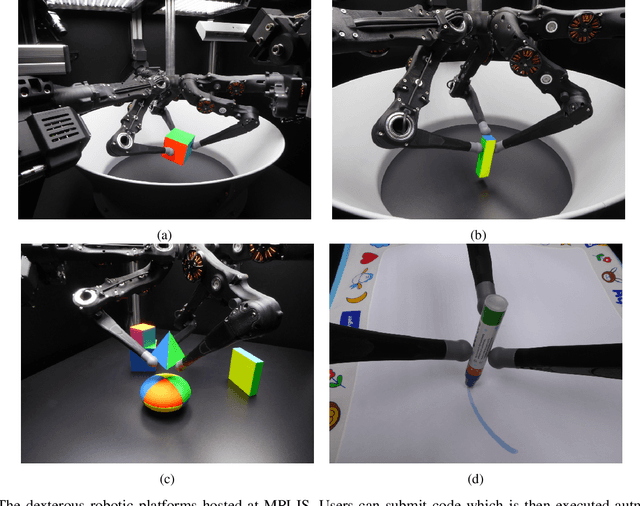

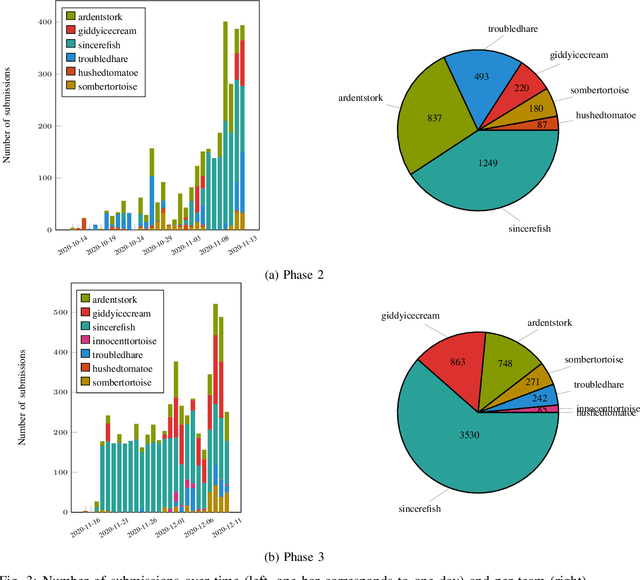

Abstract:Dexterous manipulation remains an open problem in robotics. To coordinate efforts of the research community towards tackling this problem, we propose a shared benchmark. We designed and built robotic platforms that are hosted at the MPI-IS and can be accessed remotely. Each platform consists of three robotic fingers that are capable of dexterous object manipulation. Users are able to control the platforms remotely by submitting code that is executed automatically, akin to a computational cluster. Using this setup, i) we host robotics competitions, where teams from anywhere in the world access our platforms to tackle challenging tasks, ii) we publish the datasets collected during these competitions (consisting of hundreds of robot hours), and iii) we give researchers access to these platforms for their own projects.
 Add to Chrome
Add to Chrome Add to Firefox
Add to Firefox Add to Edge
Add to Edge